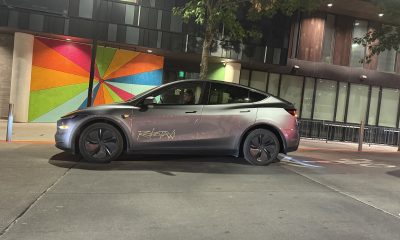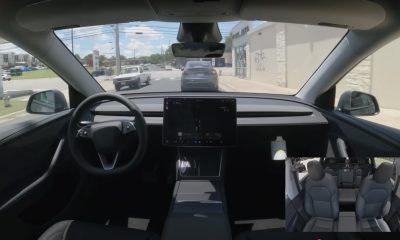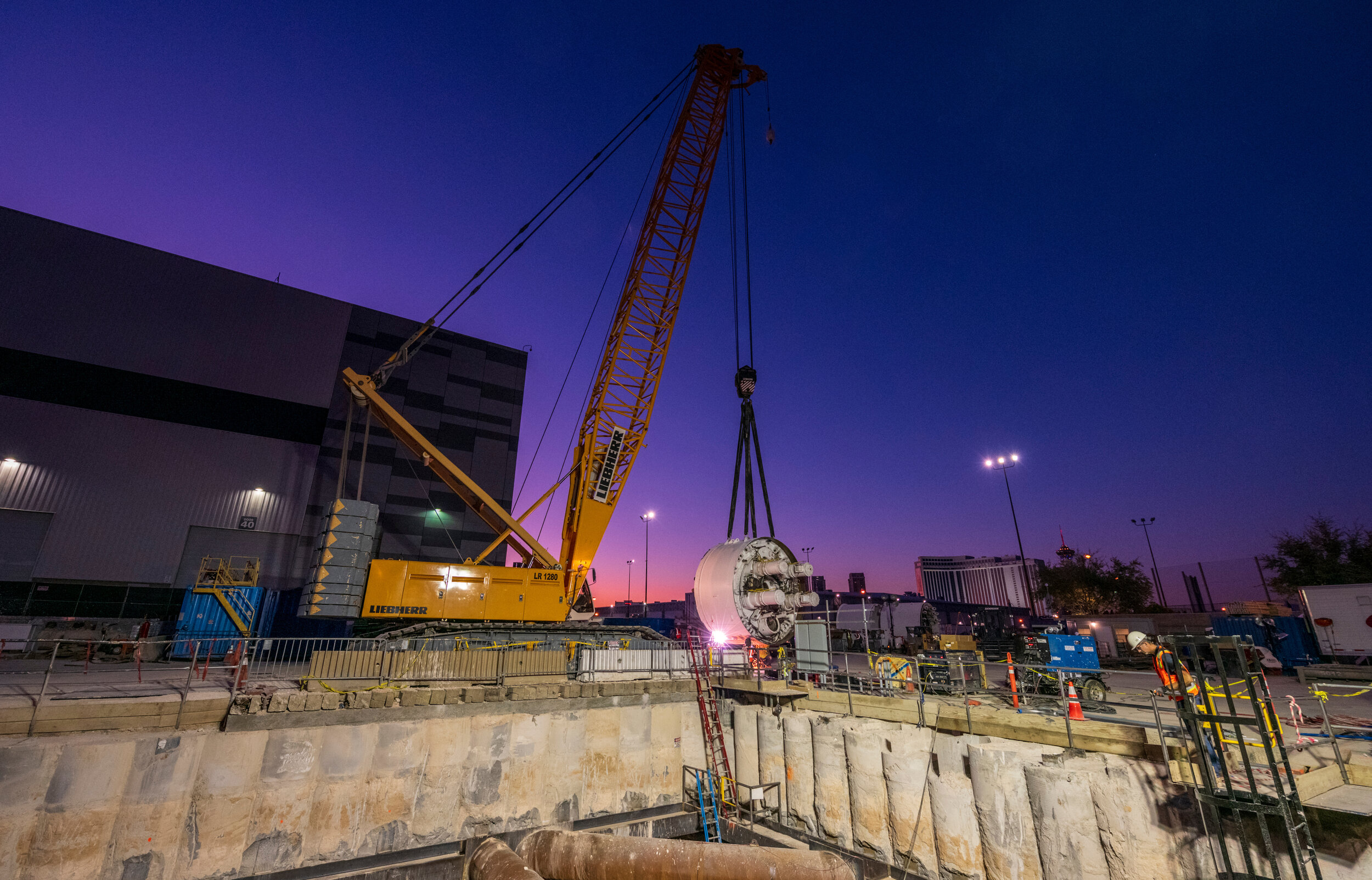

News
The Boring Company skeptics’ ‘tunnels for the rich’ argument is missing the point
The Boring Company’s Las Vegas Convention Center Loop is nearing its completion, and with it comes the emergence of Elon Musk critics arguing that the tunneling startup’s efforts are practically useless. Over the past months, the LVCC Loop has received varying degrees of skepticism and mockery that are very reminiscent of the criticisms that have been thrown at Tesla and SpaceX on a consistent basis.
A look at the comments of a video showcasing the theoretical capacity of the LVCC Loop would show this. While a good number of responses expressed some open-mindedness about the tunneling startup’s public transportation project, comments mocking the company for just building a subway or a train system are abounding. Criticism about the Loop system being “tunnels for the rich” have also been expressed.
Inasmuch as these arguments may be compelling to some, the arguments, especially those about the Loop system being a way for Elon Musk to get more money to line his pockets, do not really hold water. This argument is debunked by a simple look into Elon Musk’s other businesses, SpaceX and Tesla, and the strategy that he has employed so far.
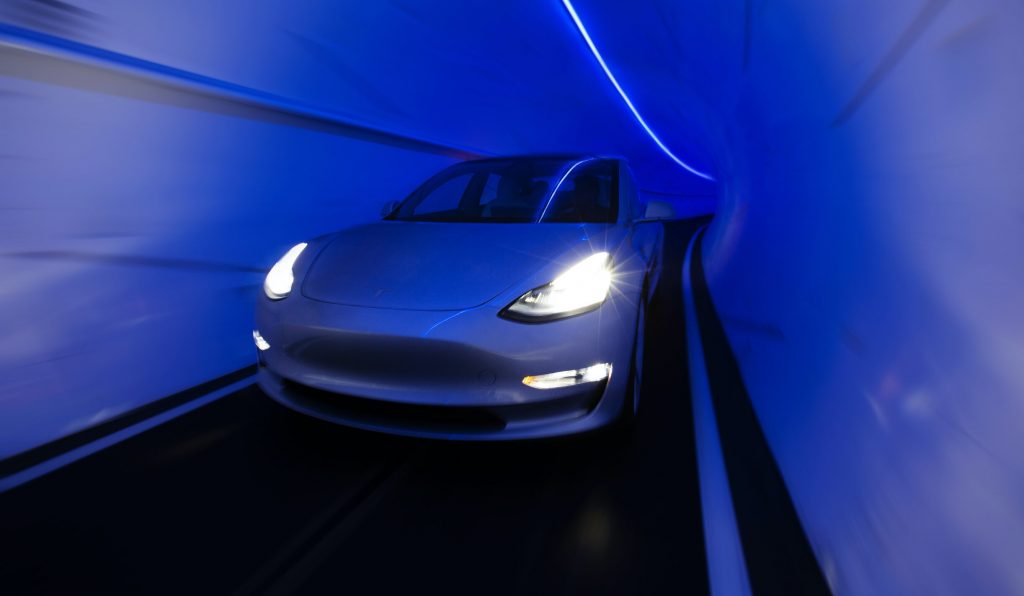
Musk’s Strategies
Simply put, if Musk were only focused on gaining as much money as he can, SpaceX launches would not be among the cheapest in the industry. Crew Dragon flights would definitely not be as affordable as they are now. The Dragon capsule is far more modern than Russia’s Soyuz capsule but it’s less expensive in price. What does this mean? Perhaps for Musk, it’s not just about making as much money as possible.
This point is highlighted by Tesla in its Q3 earnings call, with Musk and CFO Zachary Kirkhorn emphasizing that the company’s production savings are usually passed on to customers. The prices of the Model S over the years prove this. The Model S Long Range Plus variant now costs $69,420 to start. That’s a great value for a fairly large vehicle with over 400 miles of range, tons of storage, and impressive performance, somewhat dated design notwithstanding.
The same thing is true with Teslas as a whole. Teslas are still expensive, but comparable vehicles are more expensive for what they offer. The Plaid Model S may cost about $140K, but the Taycan Turbo S, arguably the best that legacy auto has to offer, starts at about $180K. Cheaper EVs like the Hongguang MINI EV in China may be far more affordable, but they offer very little tech. GM’s MINI EV has outsold the Model 3 in China, but that’s a bare-bones electric car that doesn’t even have airbags. Ultimately, when it comes to rival vehicles with comparable specs like the Xpeng P7, Tesla’s cars like the Model 3 are still bang-for-your-buck.
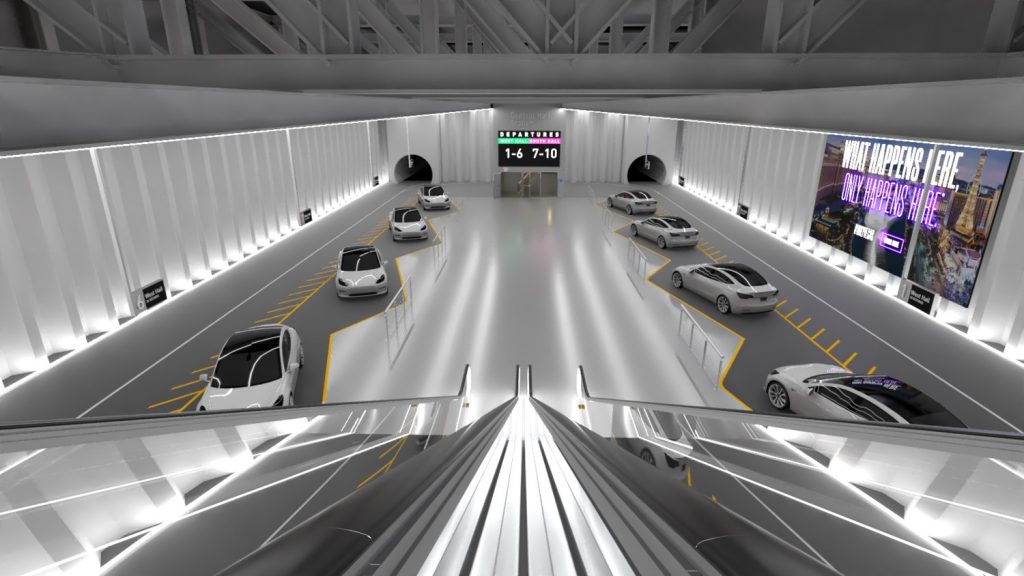
Long-term Affordability
If there’s anything about products and services that Musk develops with his team, it is the fact that they are relatively cheap to maintain. SpaceX’s rockets can get refurbished at a pretty good cost, allowing the company to be even more aggressive with its launch pricing. Tesla’s cars are cheaper to maintain than comparable gas or diesel-powered vehicles. The Boring Company’s Loop systems will likely be the same way—simple and affordable to maintain.
Pair this with the fact that Musk does not seem to be focused solely on squeezing as much profit from every customer and it seems that the Loop system is bound to be quite affordable when it does get released. The Boring Company notes that rides in the Loop would be less than half of the price of a regular taxi ride. That’s a great start, and it would likely be improved even further as the tunneling startup optimizes its operations over time.
The Boring Company’s tunnels, thanks to the company’s use of smaller tunnel boring machines and all-electric people-movers, are dirt-cheap compared to traditional tunnels such as those used in subway systems. Ultimately, these tunneling innovations are where the true disruption of the Boring Company lies. The Boring Company can build tunnels faster and cheaper—and that, ultimately, is why in the case of the Las Vegas Convention Center Loop, it wouldn’t really be as smart or innovative to “just build a train.”
Elon Musk
Tesla investors will be shocked by Jim Cramer’s latest assessment
Jim Cramer is now speaking positively about Tesla, especially in terms of its Robotaxi performance and its perception as a company.

Tesla investors will be shocked by analyst Jim Cramer’s latest assessment of the company.
When it comes to Tesla analysts, many of them are consistent. The bulls usually stay the bulls, and the bears usually stay the bears. The notable analysts on each side are Dan Ives and Adam Jonas for the bulls, and Gordon Johnson for the bears.
Jim Cramer is one analyst who does not necessarily fit this mold. Cramer, who hosts CNBC’s Mad Money, has switched his opinion on Tesla stock (NASDAQ: TSLA) many times.
He has been bullish, like he was when he said the stock was a “sleeping giant” two years ago, and he has been bearish, like he was when he said there was “nothing magnificent” about the company just a few months ago.
Now, he is back to being a bull.
Cramer’s comments were related to two key points: how NVIDIA CEO Jensen Huang describes Tesla after working closely with the Company through their transactions, and how it is not a car company, as well as the recent launch of the Robotaxi fleet.
Jensen Huang’s Tesla Narrative
Cramer says that the narrative on quarterly and annual deliveries is overblown, and those who continue to worry about Tesla’s performance on that metric are misled.
“It’s not a car company,” he said.
He went on to say that people like Huang speak highly of Tesla, and that should be enough to deter any true skepticism:
“I believe what Musk says cause Musk is working with Jensen and Jensen’s telling me what’s happening on the other side is pretty amazing.”
Tesla self-driving development gets huge compliment from NVIDIA CEO
Robotaxi Launch
Many media outlets are being extremely negative regarding the early rollout of Tesla’s Robotaxi platform in Austin, Texas.
There have been a handful of small issues, but nothing significant. Cramer says that humans make mistakes in vehicles too, yet, when Tesla’s test phase of the Robotaxi does it, it’s front page news and needs to be magnified.
He said:
“Look, I mean, drivers make mistakes all the time. Why should we hold Tesla to a standard where there can be no mistakes?”
It’s refreshing to hear Cramer speak logically about the Robotaxi fleet, as Tesla has taken every measure to ensure there are no mishaps. There are safety monitors in the passenger seat, and the area of travel is limited, confined to a small number of people.
Tesla is still improving and hopes to remove teleoperators and safety monitors slowly, as CEO Elon Musk said more freedom could be granted within one or two months.
News
Tesla launches ultra-fast V4 Superchargers in China for the first time
Tesla has V4 Superchargers rolling out in China for the first time.

Tesla already has nearly 12,000 Supercharger piles across mainland China. However, the company just initiated the rollout of the ultra-fast V4 Superchargers in China for the first time, bringing its quick-charging piles to the country for the first time since their launch last year.
The first batch of V4 Superchargers is now officially up and running in China, the company announced in a post on Chinese social media outlet Weibo today.
The company said in the post:
“The first batch of Tesla V4 Superchargers are online. Covering more service areas, high-speed charging is more convenient, and six-layer powerful protection such as rain and waterproof makes charging very safe. Simultaneously open to non-Tesla vehicles, and other brands of vehicles can also be charged. There are more than 70,000 Tesla Superchargers worldwide. The charging network layout covers 100% of the provincial capitals and municipalities in mainland China. More V4 Superchargers will be put into use across the country. Optimize the charging experience and improve energy replenishment efficiency. Tesla will accompany you to the mountains, rivers, lakes, and seas with pure electricity!”
The first V4 Superchargers Tesla installed in China are available in four cities across the country: Shanghai, Zhejiang, Gansu, and Chongqing.

Credit: Tesla China
Tesla has over 70,000 Superchargers worldwide. It is the most expansive and robust EV charging network in the world. It’s the main reason why so many companies have chosen to adopt Tesla’s charging connector in North America and Europe.
In China, some EVs can use Tesla Superchargers as well.
The V4 Supercharger is capable of charging vehicles at speeds of up to 325kW for vehicles in North America. This equates to over 1,000 miles per hour of charging.
Elon Musk
Elon Musk hints at when Tesla could reduce Safety Monitors from Robotaxi
Tesla could be reducing Safety Monitors from Robotaxi within ‘a month or two,’ CEO Elon Musk says.

Elon Musk hinted at when Tesla could begin reducing Safety Monitors from its Robotaxis. Safety Monitors are Tesla employees who sit in the front passenger seat during the driverless rides, and are there to ensure safety for occupants during the earliest rides.
Tesla launched its Robotaxi fleet in Austin last Sunday, and after eight days, videos and reviews from those who have ridden in the driverless vehicles have shown that the suite is safe, accurate, and well coordinated. However, there have been a few hiccups, but nothing that has put anyone’s safety in danger.
A vast majority — close to all of the rides — at least according to those who have ridden in the Robotaxi, have been performed without any real need for human intervention. We reported on what was the first intervention last week, as a Safety Monitor had to step in and stop the vehicle in a strange interaction with a UPS truck.
Watch the first true Tesla Robotaxi intervention by safety monitor
The Tesla and UPS delivery truck were going for the same street parking space, and the Tesla began to turn into it. The UPS driver parallel parked into the spot, which was much smaller than his truck. It seemed to be more of an instance of human error instead of the Robotaxi making the wrong move. This is something that the driverless cars will have to deal with because humans are aggressive and sometimes make moves they should not.
The Safety Monitors have not been too active in the vehicles. After all, we’ve only seen that single instance of an intervention. There was also an issue with the sun, when the Tesla braked abnormally due to the glare, but this was an instance where the car handled the scenario and proceeded normally.
With the Robotaxi fleet operating impressively, some are wondering when Tesla will begin scaling back both the Safety Monitors and Teleoperators that it is using to ensure safety with these early rides.
CEO Elon Musk answered the inquiry by stating, “As soon as we feel it is safe to do so. Probably within a month or two.”
As soon as we feel it is safe to do so.
Probably within a month or two. We continue to improve the Tesla AI with each mile driven.
— Elon Musk (@elonmusk) June 30, 2025
Musk’s response seems to confirm that there will be fewer Teleoperators and Safety Monitors in the coming months, but there will still be some within the fleet to ensure safety. Eventually, that number will get to zero.
Reaching a point where Tesla’s Robotaxi is driverless will be another significant milestone for the company and its path to fully autonomous ride-sharing.
Eventually, Tesla will roll out these capabilities to consumer-owned vehicles, offering them a path to generate revenue as their car operates autonomously and completes rides.
For now, Tesla is focusing on perfecting the area of Austin where it is currently offering driverless rides for just $4.20 to a small group of people.
-

 News5 days ago
News5 days agoTesla Robotaxi’s biggest challenge seems to be this one thing
-

 News2 weeks ago
News2 weeks agoTesla confirms massive hardware change for autonomy improvement
-

 Elon Musk2 weeks ago
Elon Musk2 weeks agoElon Musk slams Bloomberg’s shocking xAI cash burn claims
-

 News2 weeks ago
News2 weeks agoTesla China roars back with highest vehicle registrations this Q2 so far
-

 News2 weeks ago
News2 weeks agoTesla features used to flunk 16-year-old’s driver license test
-

 News2 weeks ago
News2 weeks agoTexas lawmakers urge Tesla to delay Austin robotaxi launch to September
-

 News2 weeks ago
News2 weeks agoTesla dominates Cars.com’s Made in America Index with clean sweep
-

 News2 weeks ago
News2 weeks agoTesla’s Grok integration will be more realistic with this cool feature






